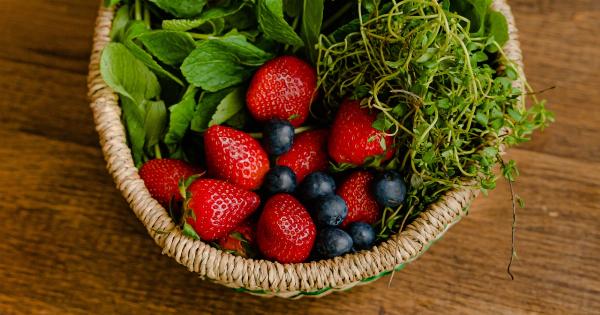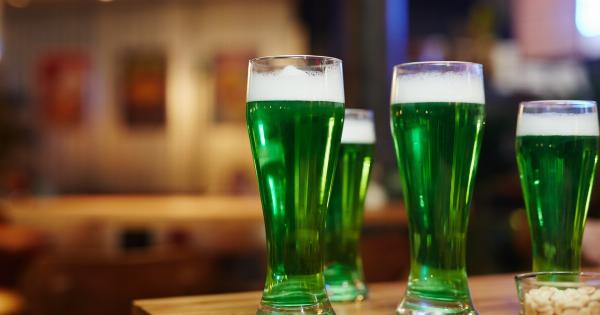In today’s fast-paced world, microwaving food has become a popular option. It’s quick and convenient and has saved many people from the hassle of cooking. However, there are certain foods that should never be microwaved.
Microwaving can result in uneven heating or even cause certain types of food to release harmful chemicals and toxins. In this article, we’ll explore 30 foods that you should avoid microwaving.
1. Hard-boiled eggs
Hard-boiled eggs should never be microwaved because they can explode due to the steam inside the egg. If you want to warm up your boiled eggs, do it in hot water or at room temperature.
2. Breast milk
Never microwave breast milk because it can destroy the nutrients and antibodies present in it. Instead, warm the milk in a pot of hot water or using a bottle warmer.
3. Grapes
When grapes are microwaved, they can explode and cause a mess. It’s best to eat them at room temperature or chilled.
4. Frozen meat
When frozen meat is microwaved, it can cook unevenly, resulting in some parts being overcooked while others are still frozen. It’s best to thaw frozen meat before cooking it.
5. Hot peppers
Microwaving hot peppers can release fumes that can irritate your eyes and nose. The best way to cook them is by sauteing or grilling them.
6. Popcorn in a microwaveable bag
Microwaving popcorn in a microwaveable bag can release harmful chemicals and toxins into the popcorn. Instead, use an air-pop popcorn maker or pop it on the stove.
7. Chinese takeout containers
Chinese takeout containers are not microwave safe and can release harmful chemicals when microwaved. Transfer the food to a microwave-safe container before heating it up.
8. Plastic containers that are not microwave safe
Plastic containers that are not microwave safe can release harmful chemicals when microwaved. Always make sure that the plastic containers you use are microwave safe.
9. Whole apples
Whole apples should never be microwaved because they can explode. Instead, slice the apples into smaller pieces before microwaving them.
10. Bread
Microwaving bread can make it hard and chewy. If you want to warm up your bread, use a toaster or an oven.
11. Hot dogs
When hot dogs are microwaved, they can burst and release harmful chemicals. Boil or grill them instead.
12. Leafy vegetables
Leafy vegetables such as spinach and kale can become wilted and soggy when microwaved. It’s best to steam or saute them instead.
13. Raw meat
Microwaving raw meat can result in uneven cooking and can leave some parts undercooked. It’s best to cook raw meat on the stove or in the oven.
14. Fried food
Fried food can become soggy and lose its crispiness when microwaved. Reheat fried food in a toaster oven or on the stove to maintain its crispy texture.
15. Butter
Microwaving butter can cause it to splatter and make a mess. It’s best to soften butter at room temperature.
16. Chocolate
When chocolate is microwaved for too long, it can burn and become clumpy. Melt chocolate in a double boiler or on the stove using a low heat setting.
17. French fries
Microwaving French fries can make them soggy and unappetizing. Reheat them in the toaster oven or on the stove to maintain their crispy texture.
18. Raw garlic
When raw garlic is microwaved, it loses its flavor and can become rubbery. If you want to cook garlic, saute it on the stove.
19. Frozen fruits
When frozen fruits are microwaved, they can become mushy and lose their flavor. It’s best to thaw them before cooking or eating.
20. Yoghurt
Microwaving yoghurt can cause it to curdle and become grainy. It’s best to let the yoghurt sit at room temperature before eating it.
21. Raw potatoes
When raw potatoes are microwaved, they can become hard and unappetizing. Boil or bake them instead.
22. Styrofoam containers
Styrofoam containers are not microwave safe and can release harmful chemicals when microwaved. Transfer the food to a microwave-safe container before heating it up.
23. Oranges
Oranges should never be microwaved because they can burn and become hard. Eat them at room temperature or chilled.
24. Rice
Microwaving rice can result in uneven cooking and can leave some parts undercooked. Use a rice cooker or cook rice on the stove instead.
25. Plastic wrap
Plastic wrap can melt and release harmful chemicals when microwaved. Use microwave-safe covers or plates instead.
26. Tomatoes
When tomatoes are microwaved, they can become mushy and lose their flavor. Eat them fresh or cook them on the stove.
27. Brown paper bags
Brown paper bags are not microwave safe and can catch fire when microwaved. Use microwave-safe containers or covers instead.
28. Canned food
When canned food is microwaved, the metal can cause sparks and damage the microwave. Transfer the food to a microwave-safe container before heating it up.
29. Pasta
Microwaving pasta can make it rubbery and unappetizing. Reheat pasta in a pot of boiling water or in the oven.
30. Metal utensils
Metal utensils can cause sparks and damage the microwave. Use microwave-safe utensils made of plastic or glass instead.



























